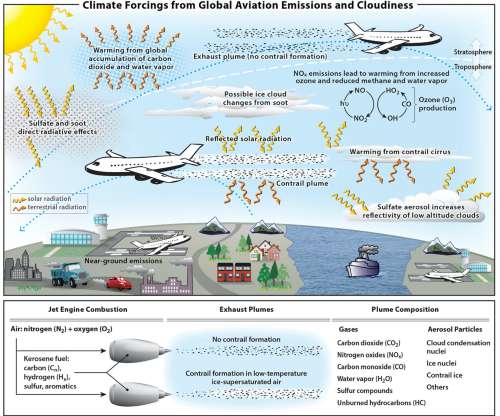Study: 2/3 of aviation climate impact due to emissions other than CO2
Green Car Congress
SEPTEMBER 6, 2020
of the human-made climate impact; two-thirds of this impact are caused by emissions other than CO 2 , according to a new study by researchers in Europe and the US. The study was published in the journal Atmospheric Environment. Seen together, the climate impact of these two factors is bigger than that of the sector’s carbon emissions.












Let's personalize your content